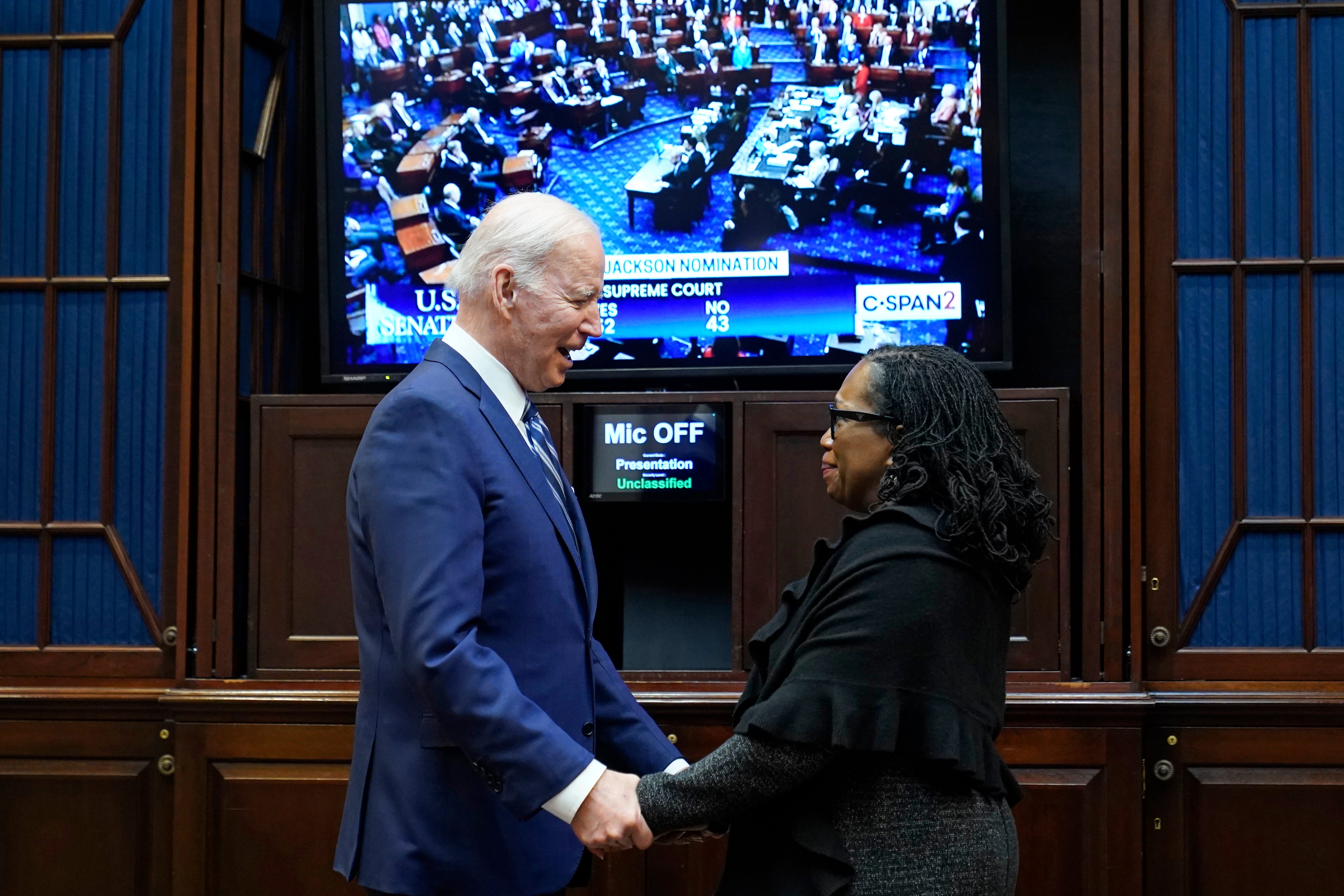Has Joe Biden made his first – and last – addition to the Supreme Court?
If another nomination was required, a confirmation vote would depend on which party controlled the Senate, writes Chris Stevenson


Joe Biden has secured at least one element of a legacy that will last beyond his time in office – the confirmation of Judge Ketanji Brown Jackson to the Supreme Court.
The 51-year-old’s life tenure should stretch beyond the president’s occupancy in the White House, even if he wins a second term. The appointment is historic for a number of reasons that have been detailed elsewhere, but will it end up being the only appointment Biden gets to make to the highest court in the US?
When you talk about the legacy of Donald Trump’s time in office, there are many things you can point to – for better or worse. But one of the most enduring is the effect his presidency had on the make-up of the Supreme Court, having had the opportunity to nominate three judges. The confirmations of Neil Gorsuch in 2017, Brett Kavanaugh in 2018 and Amy Coney Barrett in 2020 cemented a right-leaning court, giving conservative judges a 6-3 advantage.
Biden will be pleased to have been able to place Brown Jackson on the court, but the next-oldest liberal justice, Sonia Sotomayor, is 67. Clarence Thomas, 73, who has had a spell in hospital recently thanks to an infection, is the oldest of the conservative judges – but even if circumstances led to a replacement, any confirmation vote would likely depend on which party controls the Senate after the midterm elections in November.
The senior Republican in the Senate, Mitch McConnell, is non-committal about whether his party might allow a vote on a Biden nominee. “I’m not going to go forward with any prediction on what our strategy might be should we become the majority,” the senior senator from Kentucky told reporters in recent days. If Biden wins a second term, the question may come up again, but that is far from certain on all counts.
Democrats know that McConnell has previous: when Republicans were in control of the Senate in 2016, the party refused to hold a vote on then-President Barack Obama’s nominee, Merrick Garland. That nomination lasted 293 days, expiring on 3 January 2017, at the end of the 114th Congress. Trump, taking office later that month, would nominate Gorsuch. It was a painful moment for Democrats, one that Biden would not wish to see repeated.



Join our commenting forum
Join thought-provoking conversations, follow other Independent readers and see their replies
Comments